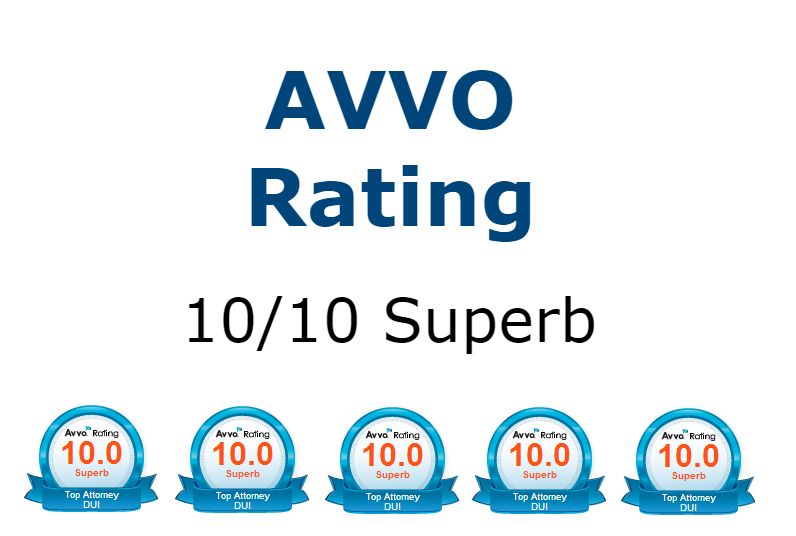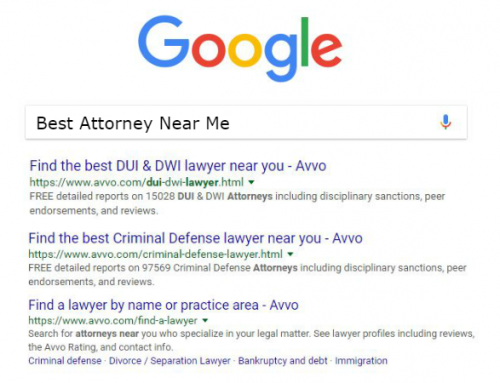When a person facing legal difficulties needs a private venue to get reliable information, they turn to search engines. It’s the ideal way to answer questions they don’t wish to ask friends, family or colleagues.
The Internet provides a wealth of resources. And online reviews offer a way for people to evaluate the trustworthiness, credibility and experience of those who seek to provide solutions.
What will they find when they search for you or your competitors to represent them?
Online Reviews: Integral Components of a Content Marketing Strategy
How important are online reviews? Consider the findings of the Local Consumer Review Survey, conducted by BrightLocal:
- 88% of consumers read reviews to evaluate the quality of a local business.
- 39% read reviews on a regular basis.
- 85% of consumers read at least 10 reviews before making their judgment.
- Nearly ¾ say that positive reviews favorably influence their opinion of businesses and builds trust.
- 88% say that they trust online reviews as much as personal reviews or recommendations.
The message is clear: people trust online reviews – as much as those from people they actually know.
While we are growing savvier as searchers, we still place a great deal of faith in these reviews…if. One or both of the following two conditions must apply: there are multiple reviews to peruse, and reviews are authentic.
5 Star Services
We have all shopped online. Do you notice the reviews? According to Google, products and services with 3 or more stars garnered the vast majority of clicks. While not a “product,” per se, your legal expertise needs the same solid reviews to attract prospective clients.
Perhaps an equally weighty reason to cultivate positive online reviews is that one unhappy client (or even a client of an opposing lawyer) can post a negative comment and create ripple effects. Even bad review can severely damage an attorney’s reputation and credibility.
Review Options for Legal Professionals
When potential clients conduct a search for “DUI lawyer,” “criminal defense attorney,” “personal injury lawyer,” or other specific niches, they’re looking for reviews from reputable sources. The top sites:
- Google.
- AVVO.
- Yelp.
- Lawyers.com and Yellow Pages.
Let’s take a closer look at each:
It’s no surprise that a Google My Business is the best option for lawyers. Reviews from this local platform offer the added benefit of Google authority. People trust this site and, by extension, reviews enjoy greater credibility. They are also given great weight and will help elevate your ranking in the search engine results pages when people are searching for “the best” or “the top” lawyer in their area.
The downside: the reviews are attached to the user’s Google account. They are not anonymous. It may be uncomfortable for many people, such as those charged with a criminal offense or DUI, to write a recommendation and provide their names. While these reviews are powerful, it may be harder to elicit them from clients.
Avvo
Avvo can unearth a wealth of information for searchers, including client reviews, disciplinary actions, and peer endorsements. This information comprises a comprehensive profile for those looking for legal representation. Further, because reviews can be anonymous (as is the case with Yelp, Lawyers.com and Yellow Pages), clients may be more inclined to write recommendations.
On Avvo, searchers can see at a glance the number of reviews, average rating, and an overall “Avvo Rating,” which is based on experience. Further, there will be a small notation under the rating if a lawyer has been disciplined by a state licensing authority.
Because sites like Avvo and Justia often appear higher in the search results pages than individual firms or lawyers, it is important to maintain an updated profile with multiple reviews.
Yelp
According to a recent survey conducted by legal management technology consultancy Software Advice, Yelp emerged as the most popular and trusted site for lawyer reviews. Prospective clients weigh quality of service and experience as the top factors influencing their decisions, and most are willing to travel further to receive service from a higher-rated attorney.
Lawyers.com and Yellow Pages
Bringing up the rear is Lawyers.com and the Yellow Pages. Both rank well in searches for local lawyers, so maintaining an up-to-date profile can help boost your visibility. While perhaps not as “trusted” as Google+, Avvo, and Yelp (as in they may not be the first choices), they are still authoritative sources that consumers look to for reliable information.
And remember, negative reviews on these sites can have powerful ramifications, so don’t neglect a platform for fear it’s irrelevant.
How to Garner More Reviews
Prospective clients want a number of reviews to consider. To ensure you have a healthy number:
- Take a look at the reviews you already have on various platforms. If there are any outstanding complaints or issues, address them immediately. The worst step you can take if you receive negative comments is nothing. Reach out respectfully, and take the appropriate steps to resolve the situation.
- At the end of an engagement, ask for reviews. Don’t request good reviews! Just ask clients to leave a review on your website. Let them decide what they want to say. If they’re satisfied, they’ll let you know, and you don’t have to step into a “salesperson” role. And don’t wait. People are most likely to review immediately.
- Make it easy to leave feedback on your website. Instead of a lengthy form, install an easy “Leave Feedback” button. A few keystrokes later, your client is done – and again satisfied with the convenience you offer!
- Thank your clients. If they leave reviews and the platform has a function that allows you to thank them, take advantage. Let them know that you appreciate the time they took, as well as their business.
A few don’ts:
- Don’t incent clients to leave reviews. While this can work in retail-type businesses, it’s generally not a good practice for professionals, especially lawyers. You don’t want to imply you’re “buying” or “trading” positive reviews.
- Don’t be shy. Yes, it can be awkward to ask for reviews. But simply say, “We’re working on improving our services. If you leave a review, it will help us, and it will help other clients.”
- Don’t wait to act on negativity. It bears repeating. Do not let negativity fester. Take the opportunity to address the problem. Most often, people just want to be heard. You can even turn a negative situation into a positive by reaching out. And if not, at least you tried. In this online landscape, that means something. It is reflected in your responses, which potential clients can read and factor into their decision. Assume every comment is a conversation that everyone can overhear. Conduct yourself accordingly, and you will be able to leverage this powerful tool.
Searchers trust online reviews. Take steps today to ensure you have plenty for potential clients to read through. This helps them make sound decisions — and helps you generate solid leads for your practice.









